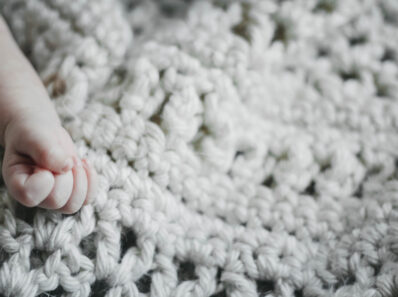In our digital age, and certainly in the wake of COVID-19, most of our interactions with those outside of our own households are happening via text, social media, email, phone call, video chat, etc. And this is the distressing reality that we are all witnessing: our current forms of communication have lost the necessary art of understanding.
We are missing each other and we are missing each other.
It’s like the children’s game of telephone, only no one is whispering. We are cyber yelling from our separate, fortified hilltops, with our flags planted firmly in the earth. From behind the impenetrable walls of our constructed beliefs, we aggressively catapult stones. We are fighting and nit picking, and tearing each other apart in non-logical ways, without bothering to listen. And it’s not just polar disagreements; many of us are shouting the same arguments using different words. And yet we are critiquing phrasing, instead of seeking to reconcile the fact that we actually mostly agree. Perhaps not in process or execution, but on the main conclusion and desired outcome. Not always, but much of the time.
Not everyone is yelling. Some of us are silently hiding within the false security of our keeps. We have grown comfortable and apathetic. We have striven to remain unaffected and have effectively fallen asleep. Yet no matter where we may fall on the spectrum of hostility to indifference, this is all a distraction from the same reality.
We are all afraid. Underneath everything is always fear. Fear of change, and what that change may require of us.
We have forgotten what it looks like to have healthy conversations that lead to mutual understanding. This is because these kinds of conversations are uncomfortable. They are always a risk. They involve an investment of time and energy. They demand that we choose courage and humility over our deafening and overwhelming fear.
Endeavoring to truly understand the other means we must place our assumptions of their malicious intent on hold for the time being, and choose to see the image of the divine in them. We must decide to offer respect and dignity to the other, even if we do not think they deserve it. We must actively listen, instead of constantly interjecting or waiting for our chance to speak. We must genuinely seek to know, to see, to uncover, to understand. And understanding the other must take precedence over being understood.
When we sit across a messy kitchen table and break bread; when we sink into a couch beside one another while cradling warm cups; when we look into the eyes of the other and our inhaling presence is near to them; in these moments it is easier to see them for who they really are. Not the enemy. Probably different from us in the way they process, communicate, and come to conclusions; but rarely are they the enemy.
In our current world, conversations can often be one-sided. They are habitually missing at least a few of the elements that not only aid, but are critical in understanding. These are pieces that we know make up over 90% of conversation: body language, tone of voice, facial expressions. But beyond that, the normal ebb and flow of a conversation contains that natural pause that allows for welcomed clarifying questions. Maybe my facial expressions did not line up with what I was saying, maybe the word choice was poor—these questions help us to avoid possible misinterpretations and misunderstandings. A face-to-face interaction with a trusted individual generally contains extra words and time. This is because space is allowed for all of the confusing and distracting bits to fall away to get to the heart. And usually at the end of these exchanges, those involved have had the chance to express, question, and hear each other fully.
Jesus, God wearing flesh among us, demonstrated this truth in the Gospel accounts. To the frustration of many, He was known for asking more questions than He gave answers. Clearly this was not because He needed the answers to those questions. Perhaps this was His way of showing a world ravaged with unrest, the pathway back to understanding.
Right now as it stands, in our digital discussions, I may easily miss subtle but significant nuances. A turning of the head, a squint of the eye, the down turn of the mouth (covered by a mask), a shift in body language, a crossing of the arms, a repetitive fidgeting of the leg, a rise in voice inflection or tone, the gentle touch of a hand reaching across the table, the warmth of the body sitting beside me that reminds me that they are a human. A human of great worth, with real life experiences, good and bad, healthy and traumatic, and everything in between.
Notice what I didn’t say, I said understand, I didn’t say agree. We don’t all have to agree at the end of the day. We are all vastly diverse people with differences brought about by nature and nurture. But we can always strive to find a way to understand the other, if we choose it. Understanding does not mean we excuse harmful beliefs or behavior. It simply means that our eyes can see how they got to where they are. And hopefully understanding creates empathy. Change is possible with understanding and empathy.
Not the kind of change that screams from fortified hilltops. No hearts or minds can change from that kind of distance. The kind of change I am proposing is that of feet stumbling down respective hillsides and meeting in the valley (while following health department guidelines of course), where we can easily glance down and discover that we are standing amidst the same soil. Or perhaps it’s the kind of change that scrambles up an unknown slope, with dirty knees and scraped palms, and knocks gently against stone walls. It’s the kind of change that bares a vulnerable chest outside of well-guarded strongholds, and says “help me to understand.” And it’s the kind of change that listens and allows empathy to take root. Then later offers a welcoming hand and says “If you’ll allow it, let me show you another way.” If accepted, then the trek can be made together to the other hilltop.
In time, we may discover that we share more in common than we realized. We may find our shared experiences, our aches, our losses, our hopes shoot up everywhere we look, like wildflowers in valley fields. And the seeds borne on pant legs and shoe grooves are conveyed from the valley floor to our hilltop fortresses. They embed themselves into the cracks of these hardened exteriors, the spaces where now a little light is peaking. Places that had long been sealed behind words such as “I will never understand.” And maybe just maybe, little valley flowers can take root in the crevices and begin to blossom. These are the fragile birthing places where growth can occur, where vision can shift, for all of us.
And perhaps eventually the valley can spread across our hillsides until it is all awash in blooms. A field of poppies, lupines, daisies, bluebells, and buttercups blanketing our once impassable defenses. Perhaps communities can be built in this valley where our stories all converge in brilliant difference and brilliant unity. Perhaps understanding can once again be found in our imperfect conversations across kitchen tables. Perhaps change can happen as we rediscover the art of understanding.



So beautiful Katie! Yes, meet, talk, share…but also listen; mostly listen, right? These are the way to tender hearts.
Definitely mostly listen! Thanks friend.
❤️ I love these words and the heart they came from. Beautiful, friend.
I’ve felt for a long time that fear stands behind much if the angst in the world and in our younger generation. And the dear of change and not being sure if we can keep up. That is the beauty of Christ in us and the peace that passes understanding. Time for us to step up and be the peace and the understanding.
Thank you Katie! ?
Lovely – echoes the desires of my heart for community. Well said.
Thank you Stacy : Mine too!
Beautifully said! Thank you for sharing these helpful thoughts. I just recently disagreed with my brother, in person, but we were able to hear each other and move forward. God bless you!
That’s great! I’m glad to hear about that victory.
Beautiful site and incredible insight. Thank you for sharing, Katie. So grateful to be sharing this season with you. ❤️